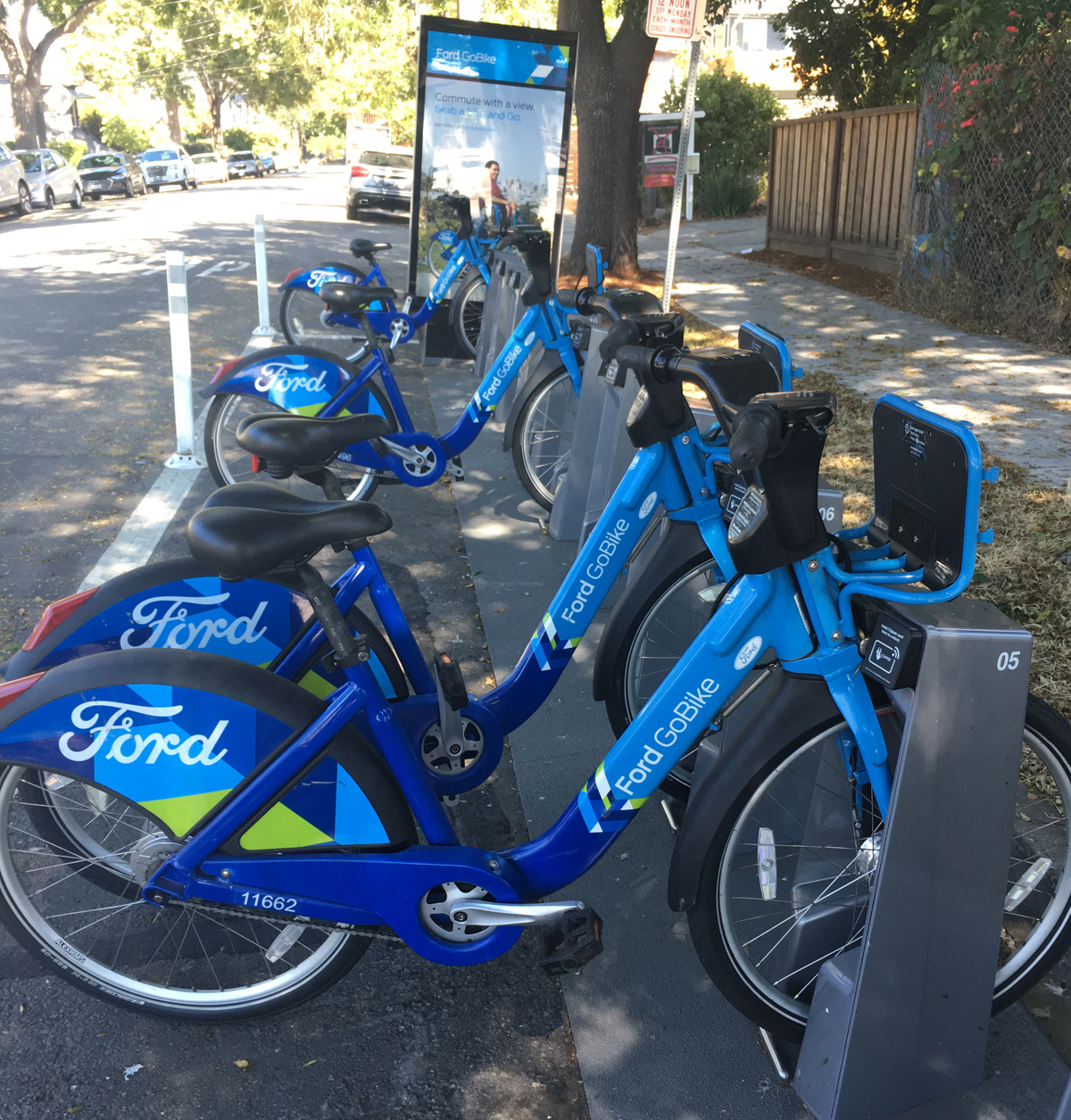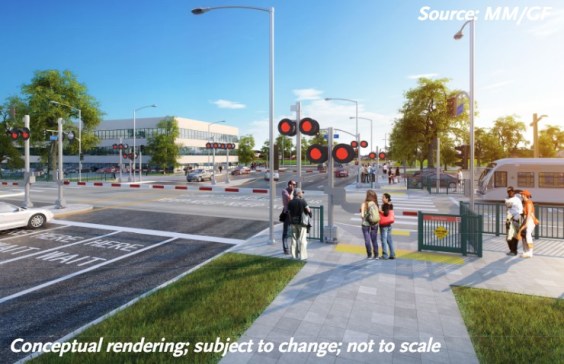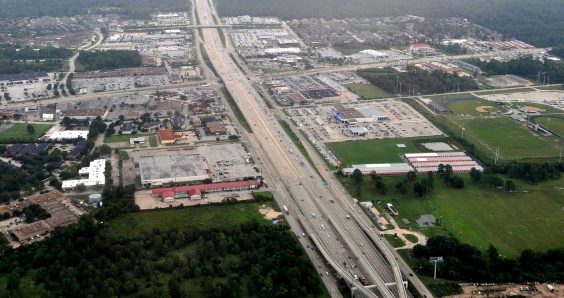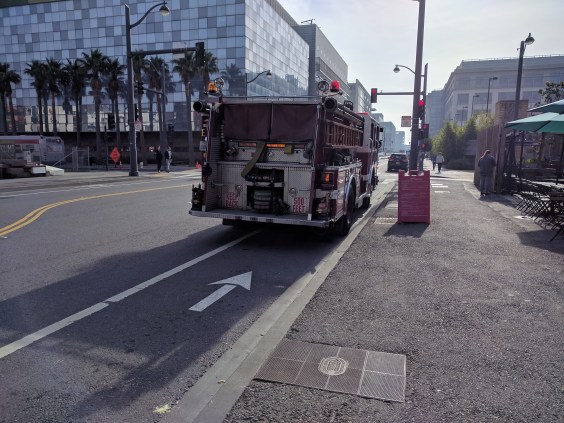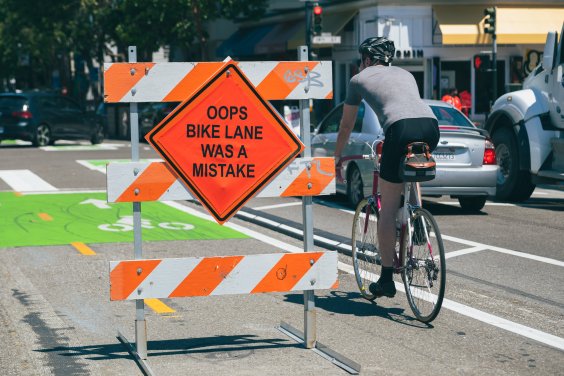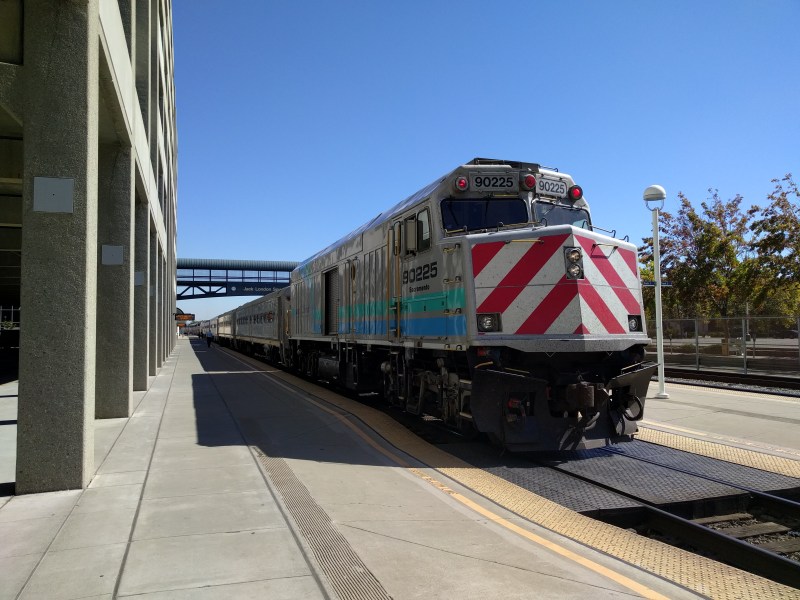Note: GJEL Accident Attorneys regularly sponsors coverage on Streetsblog San Francisco and Streetsblog California. Unless noted in the story, GJEL Accident Attorneys is not consulted for the content or editorial direction of the sponsored content.
Senator Nancy Skinner has been trying to get a bill through the California legislature that would require ride-hail companies—Uber and Lyft and the like—to increase the number of zero-emission vehicles used by their drivers. After several iterations, the bill, S.B. 1014, now includes an amendment that defines zero-emission vehicles to include bicycles, and would credit Uber and Lyft with miles ridden on bikes, and potentially scooters, using their apps.
This puts the recent actions of both companies in investing in or acquiring bike-share companies—Uber in Jump, Lyft buying Motivate—in a new light.
The ride-hail sector produces a growing share of the vehicles miles driven in California, and if the state is to meet its goals for cleaning up greenhouse gas emissions, sooner or later these companies will have to get on board with the effort to electrify the transportation sector.
But both companies pushed back hard against S.B. 1014 as well as a predecessor bill, S.B 802, that would have required all autonomous vehicles to be electric, whenever they come onto the market. The companies claimed that proposed regulations would harm not them, but the low-income drivers who rely on the ride-hail apps to help make ends meet.
That argument is more than a bit disingenuous, given that Lyft has made no secret of the fact that it intends to ditch those drivers as soon as it can begin deploying autonomous vehicles.
In response to the push-back, Senator Skinner shifted the bill's focus from fleet-wide goals—the proportion of electric vehicles used by ride-hail drivers—to the number of miles driven by zero-emission vehicles while providing rides. This would theoretically put pressure on those drivers who drive the most for Uber or Lyft to be early adopters of clean vehicles, instead of on the part-time drivers who are using the vehicles they happen to have.
The credit for bike-share miles is an intriguing idea. Both companies would have a strong interest in making bike-share successful and encouraging its use, which could be a big boost for the systems. It could also motivate the companies to support cities in improving bike infrastructure to get more people riding them.
It is also not likely to make a big dent in other requirements of the bill. The bike miles would never be enough to counteract the need for both companies to also encourage shared rides and the adoption of electric vehicles.
A financial incentive to promote bike usage as a clean alternative travel mode: is that what's been missing from transportation planning all these years?
Right now the bill would require the Air Resources Board to establish a baseline measure of greenhouse gas emissions from ride-hail companies, per passenger mile, using 2018 data. That means any “credit” for bike miles ridden would be above what takes place this year.
The ARB would have until 2020 to figure out the baseline measures, then S.B. 1014 would require the ARB to set targets for reducing those emissions, starting in 2023, and would require the companies themselves to create their own greenhouse gas reduction plans.
The California Public Utilities Commission, which has regulatory authority over ride-hail companies, would oversee regulations and incentives to achieve the targets set by the ARB. It has already studied this issue in some detail, and has issued a white paper on the subject of increasing the use of electric vehicles in the ride-hail sector.
The PUC would coordinate with other state policies and programs, making sure that ride-hail drivers had access to, for example, existing electric vehicle rebate programs. The PUC would also be required to ensure a minimal negative impact on low-income drivers, and ensure that ride-hailing services complement and support the objectives of sustainable communities strategies and support the goals of clean mobility for low- and moderate-income people.
Another consideration is data: where would the information about miles driven and greenhouse gases produced come from, and how would it be reported? Lyft and Uber have both been extremely parsimonious with their data, unlike the current management at Motivate, for example. It has been difficult for cities to get even basic information on miles driven, which has hampered their ability to plan and mitigate for either increased congestion or decreased transit use due to the presence of ride-hail.
Nevertheless, the only new data required by S.B. 1014 would be a once-yearly report on total miles by type of vehicle.
Another provision in an earlier version of the bill would have required ride-hail companies to ensure that 100 percent of any vehicles they own were zero-emission vehicles. Because they do not own or manage fleets now, that provision would have applied to any future fleet of autonomous vehicles. Unfortunately, it was struck from the current version of the bill.
Lyft has pledged to “provide over 1 billion rides in shared, electric autonomous vehicles fueled entirely by renewable energy by 2025.” If so, then why bristle at codifying it into law? The company has also pledged to replace “two million energy-inefficient cars with zero-emission Lyft vehicles,” some day, and yesterday--after this story was published--announced a commitment to the goals of Vision Zero.
At a hearing on the bill in April, Laura Bisesto, senior policy director for Lyft, announced that “all [Lyft] rides globally will become 'carbon neutral' through our voluntary purchase of offsets.”
“We anticipate offsetting one million metric tonnes of carbon,” she said, but offered no details about where those offsets would be made. There is a little bit of information on the company's website.
The companies had complained that S.B. 1014 would put their drivers at a serious disadvantage because infrastructure for charging vehicles is sorely lacking in California. Short driving ranges and fueling time would, they said, create inconvenient obstacles to the expansion of their business. But those technological barriers are being addressed right now by huge investments the state is making in fast-charging stations and other infrastructure for electric vehicles.
Kudos to Senator Skinner for shaping a law that recognizes that bicycles are clean and well worth promoting as a mode. The effort reflects clear thinking, as does a recent UN agreement that bike projects can earn saleable carbon credits under its Clean Development Mechanism.
More of this, please.
S.B. 1014 has passed both Assembly and Transportation committee hearings, and is currently awaiting its fate in the Senate Appropriations Committee, which will meet publicly to announce the fate of bills when the Senate comes back from recess in August.
Follow Streetsblog California on Twitter @StreetsblogCal
